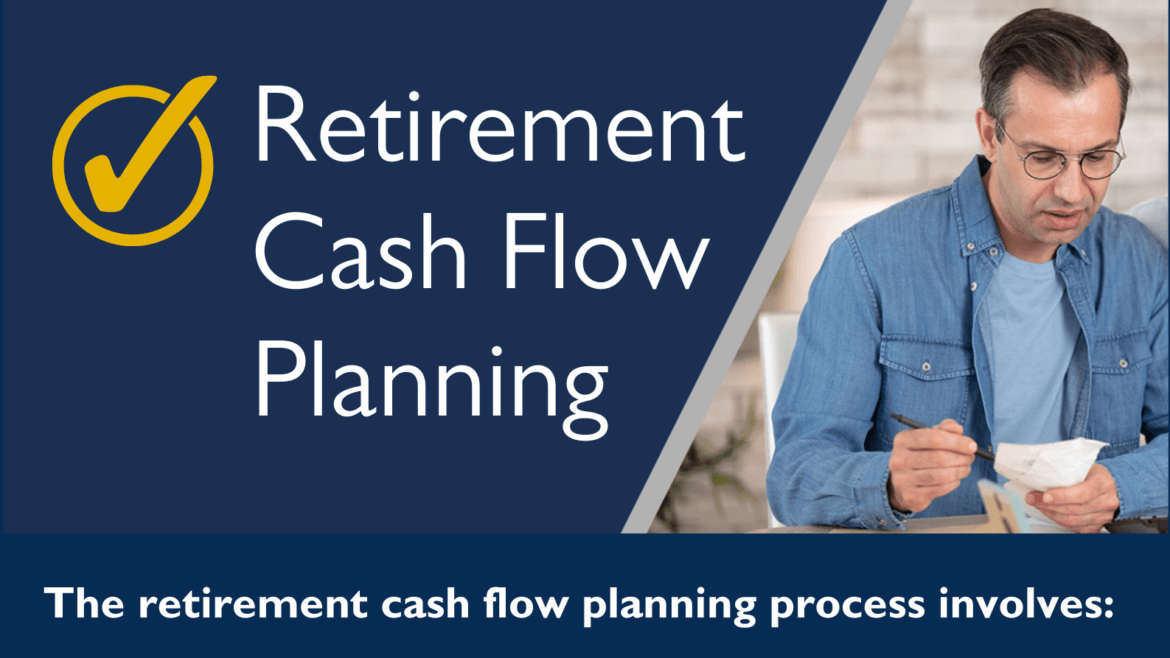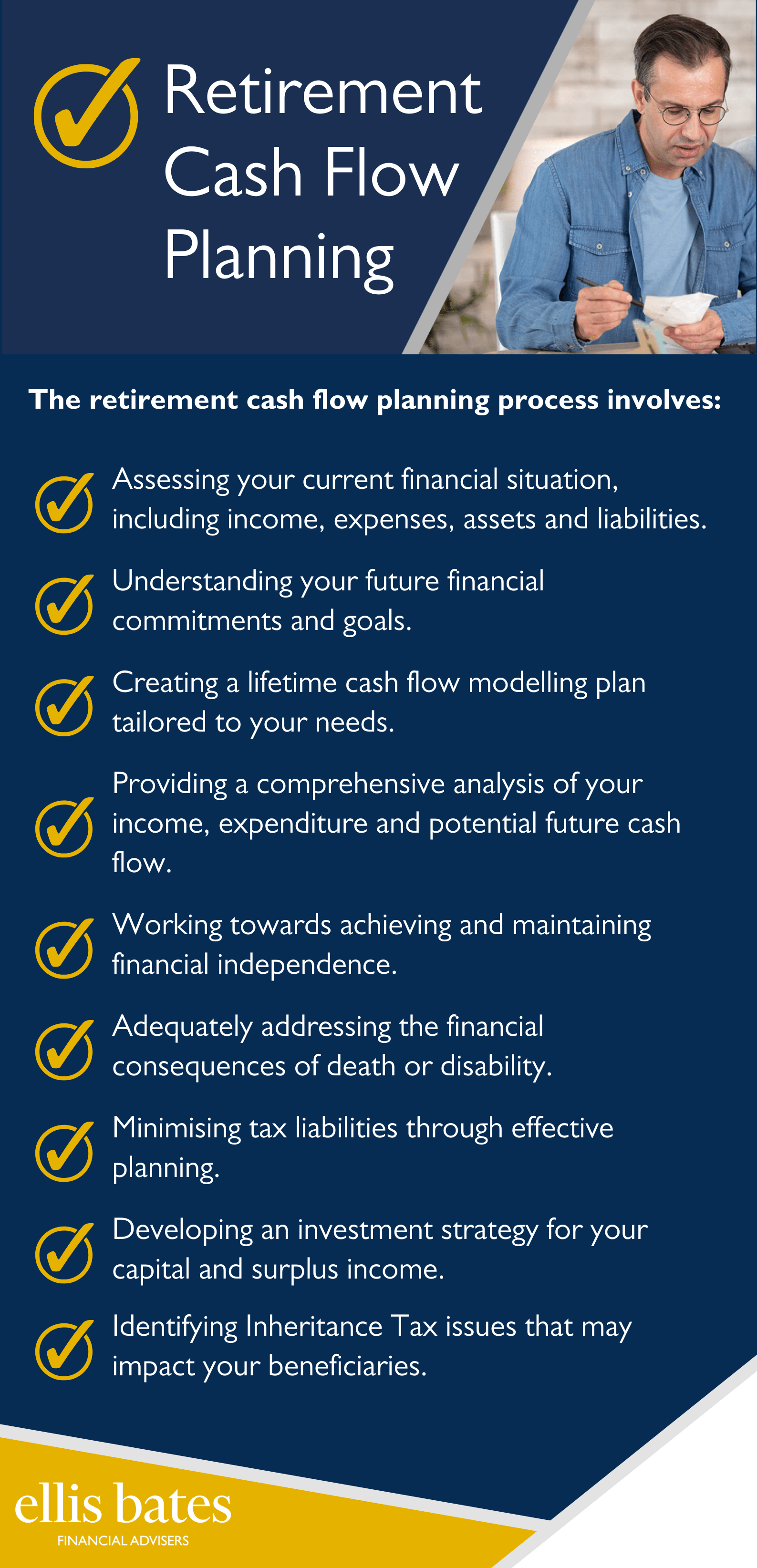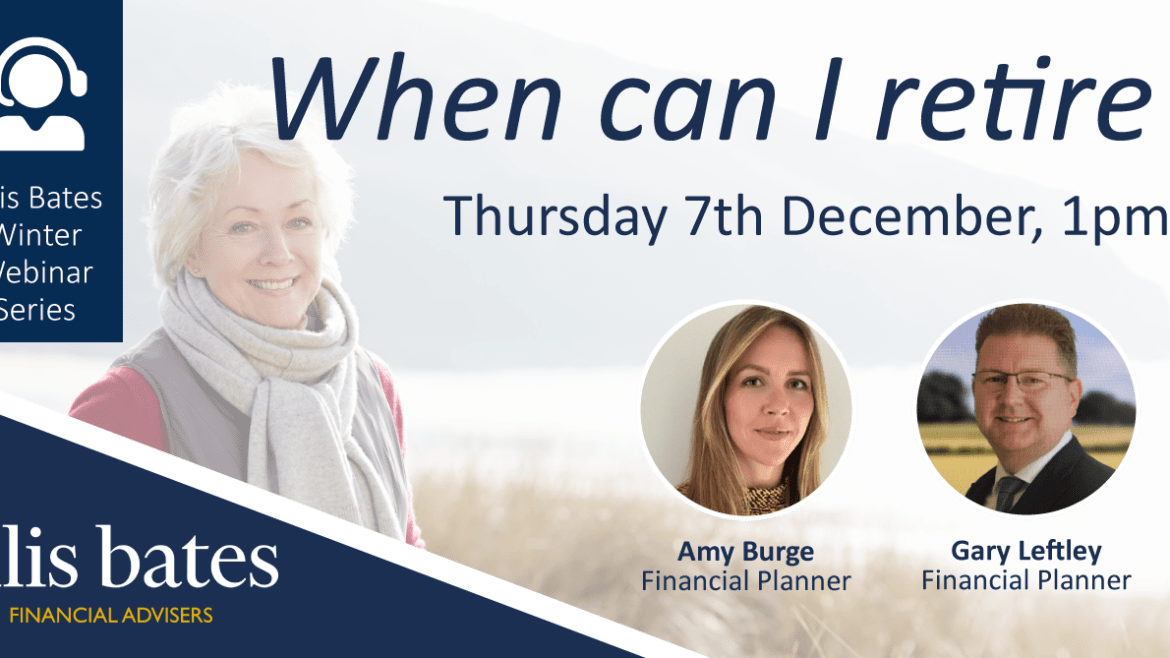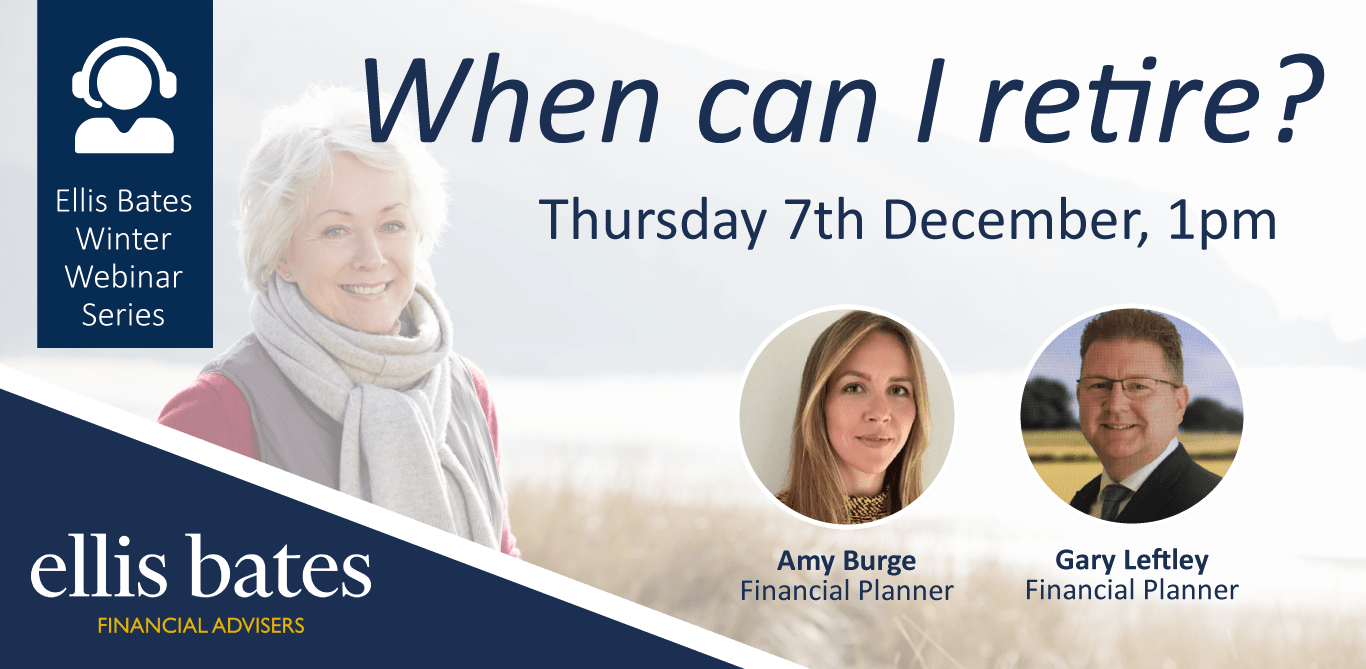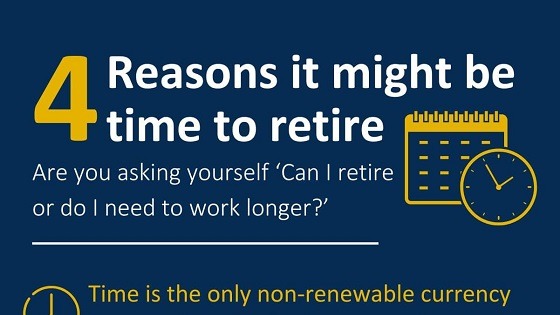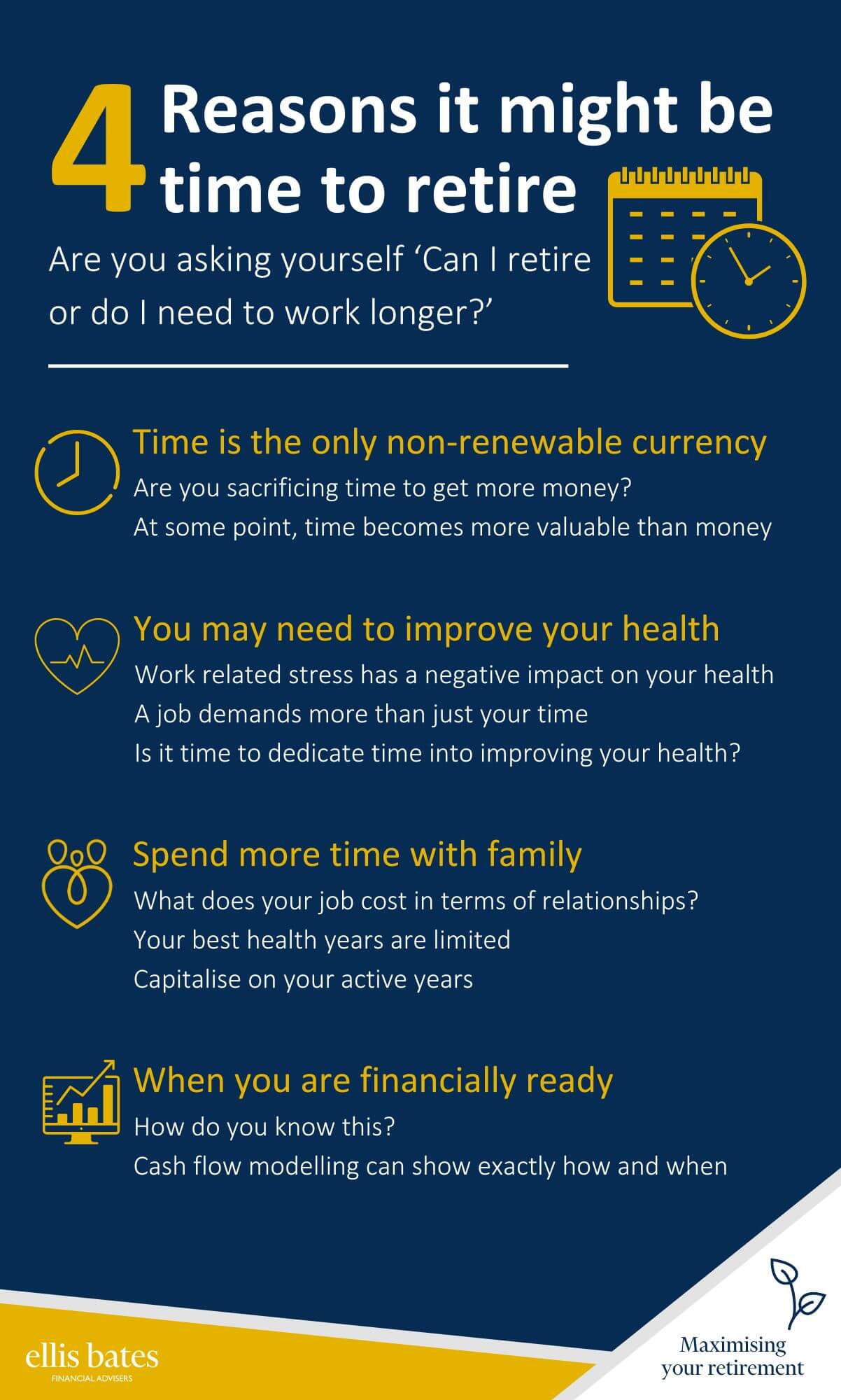Retirement Cash Flow Modelling
https://www.ellisbates.com/wp-content/uploads/2024/03/shutterstock_1826105549-LR.jpg 1000 667 Jess Easby Jess Easby https://secure.gravatar.com/avatar/0e2a278e0eef1defdd7ee9d0ae7bb398?s=96&d=mm&r=g
Assessing your current and projected wealth, income and expenses
Retirement planning is of utmost importance, regardless of your income or wealth. It ensures a steady income stream after retirement and provides financial security for you and your loved ones.
Retirement cash flow modelling can provide numerous benefits to individuals seeking financial security and planning for the future. By assessing your current and projected wealth, income and expenses, retirement cash flow modelling can help you understand your current and potential future finances.
Here are some of the key reasons why retirement cash flow modelling is crucial:
Avoid running out of money: Planning helps you calculate the savings rate required to support your desired lifestyle during retirement, ensuring you don’t run out of money.
Setting retirement income goals: This involves determining your retirement income goals and identifying the necessary steps to achieve them. This allows you to plan for various financial sources and secure a comfortable retirement.
Creating a regular flow of income: A well-structured and regularly reviewed plan enables you to create a regular flow of income after retirement. This fixed income substitutes your pre-retirement salary, ensuring financial stability.
Strategic investment decisions: Retirement planning involves making strategic investment decisions to achieve specific savings goals. This helps in maximising returns and growing your retirement fund over time.
Financial security: By having a solid retirement plan, you can provide yourself and your loved ones with financial security. This is particularly important as more than social security benefits is needed to sustain your desired lifestyle.
Enjoying a comfortable retirement: A comprehensive retirement plan has the potential to allow you to enjoy a comfortable retirement, free from financial worries. It provides the means to pursue your desired activities, travel and maintain a high standard of living.
Reviewing existing pension arrangements: Regularly reviewing your existing pension arrangements and taking the required steps can significantly affect the amount of money you’ll accumulate for retirement. Seeking professional help can ease the process and ensure you make informed decisions.
How retirement cash flow modelling can work for you
Managing accumulated wealth: If you have accumulated wealth, retirement cash flow modelling can assist you in effectively managing your financial position and making informed decisions as you retire. Long-term planning: Cash flow planning is especially beneficial if you have long-term personal or business objectives. It lets you determine how much you need to save and the returns required to meet those goals.
Care home fees planning: Cash flow modelling can also be used for planning care home fees, helping you understand the financial implications of such expenses and prepare accordingly.
The retirement cash flow planning process involves:
■ Assessing your current financial situation, including income, expenses, assets and liabilities.
■ Understanding your future financial commitments and goals.
■ Creating a lifetime cash flow modelling plan tailored to your needs.
■ Providing a comprehensive analysis of your income, expenditure and potential future cash flow.
■ Working towards achieving and maintaining financial independence.
■ Adequately addressing the financial consequences of death or disability.
■ Minimising tax liabilities through effective planning.
■ Developing an investment strategy for your capital and surplus income.
■ Identifying Inheritance Tax issues that may impact your beneficiaries.
Answering critical questions
Ultimately, retirement cash flow modelling helps answer critical questions such as whether your savings and assets are sufficient to support your aspirations, if you can retire early, if your investment risk is appropriate and if you will have enough money to sustain yourself throughout retirement.
Are you looking to create your retirement cash flow plan?
Contact us now for more information. We assist you in analysing your current financial situation and creating a customised plan to ensure your retirement meets your goals. If it turns out that your cash flow plan falls short, don’t worry we have various retirement planning strategies to help get you back on track.


